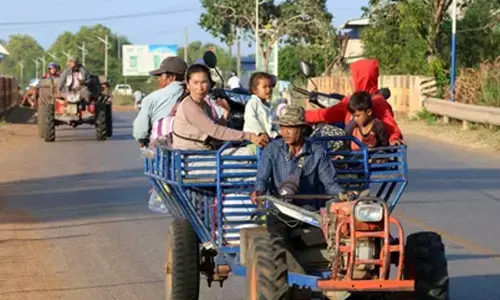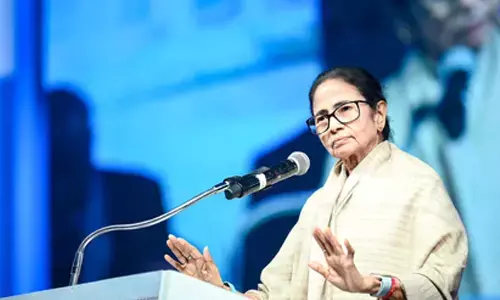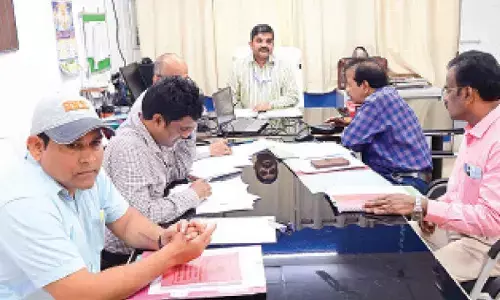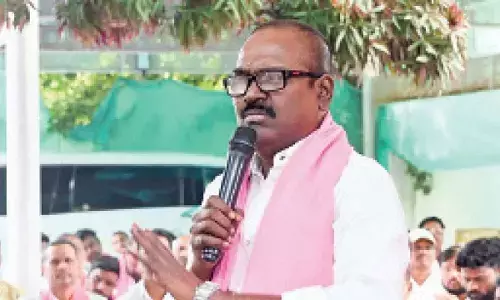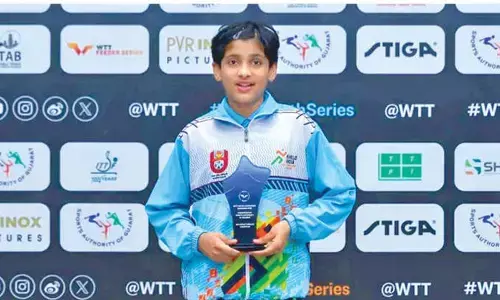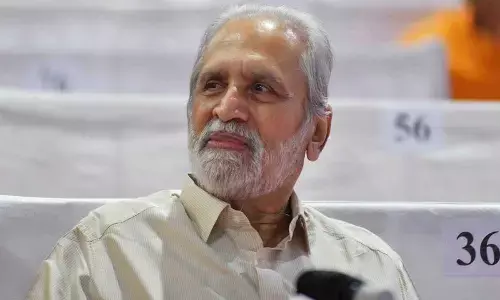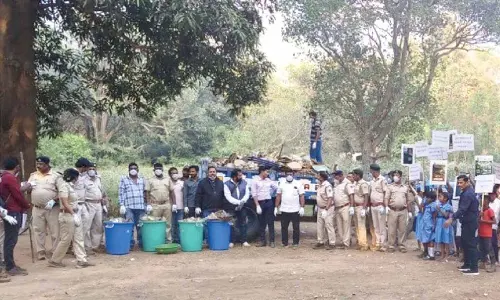PM Modi’s Egypt visit bolsters strategic partnership: Fmr envoy Trigunayat
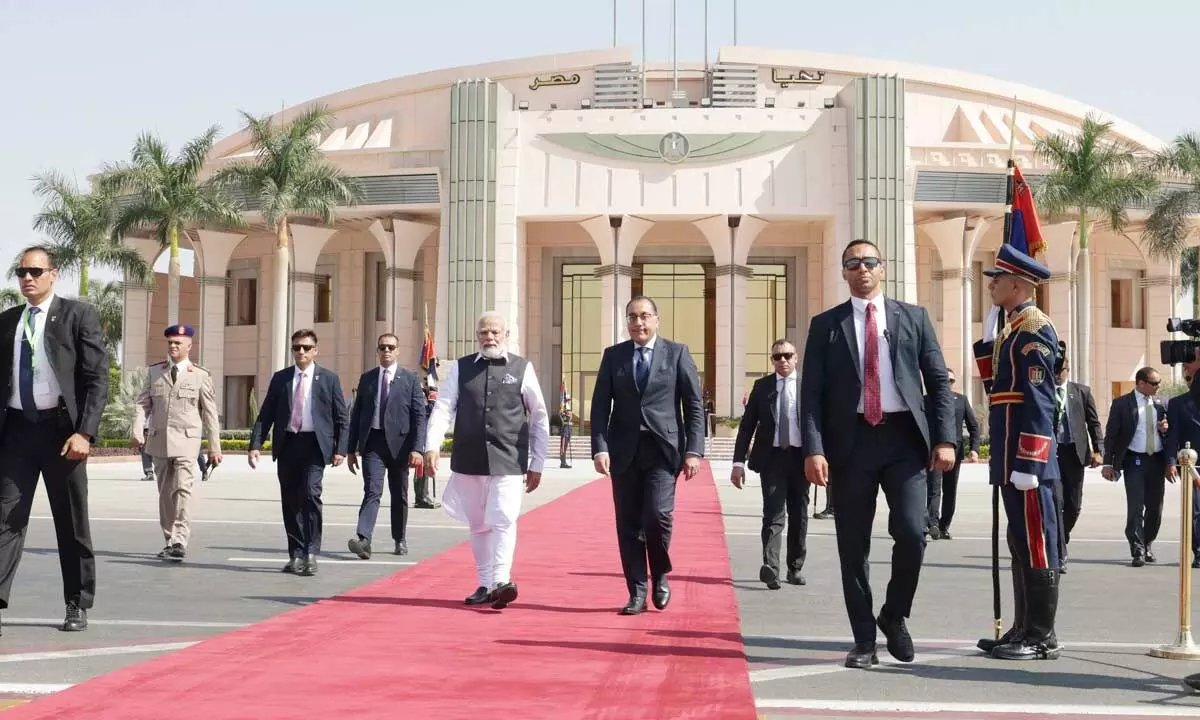
As Prime Minister Narendra Modi embarked on a two day visit to Egypt, The Hans India speaks exclusively to Anil Trigunayat, Former Ambassador of India to Jordan, Libya, and Malta on India’s long standing and multi-faceted ties with Egypt.
Hyderabad: As Prime Minister Narendra Modi embarked on a two day visit to Egypt, The Hans India speaks exclusively to Anil Trigunayat, Former Ambassador of India to Jordan, Libya, and Malta on India’s long standing and multi-faceted ties with Egypt.
As Prime Minister Narendra Modi embarked on a bilateral visit to Egypt, how significant is this Arab nation for India in the region and beyond?
Egypt has an African and Arab identity as well as the seat of the Arab League. Its strategic location with the Red Sea, Horn of Africa and the Mediterranean, and the Suez Canal provide the requisite maritime strategic uniqueness and heft. India is also strategically located and considers the Arab world highly significant. Both have historic and civilizational ties and have had excellent cooperation in the past, especially during the Nehru-Nasser NAM era. In modern times, in India’s Indo-Pacific and maritime strategy, Cairo can play a significant role as the high-level exchanges continue to increase in the number of visits and critical areas for cooperation, including security and defence, counter-terrorism, climate change, economy and investments, people to people contacts and cultural cooperation. They have been elevated to the strategic partnership level during January 2023 visit of President Abdel Fattah El-Sisi when he was invited as a special Chief guest on our Republic Day, which is a unique honour conferred on very special friends. Egypt has also been invited along with Oman and UAE as special guest under India’s G20 Presidency. Due to its location and wide-ranging Free Trade Agreements (FTAs) and economic opportunities being the largest Arab nation, in terms of population, it is seeking greater Indian investments, especially in the Suez Economic Zone.
How do you look at the Chinese footprints in Egypt and other Arab states with its Belt and Road Initiative? Will it influence our relationship with Egypt?
China and Egypt have a very close partnership, Cairo is also part of the Chinese Belt and Road Initiative and maritime silk roads, and China has been involved in developing critical infrastructure in the country. But that is a reality in every geography. Hence, we should develop our crucial linkages and partnership devoid of the China factor and must not be concerned and leave it to the best judgment of the Egyptians. India and Egypt relations stand on their own, which is clearly evident from the intensity of exchanges between the two sides in recent times, including PM Modi’s State visit to Egypt that is happening after 1997.The hiatus and hesitations are over.
How does the Prime Minister’s visit help in cementing ties with Bohra Muslims back home?
PM Modi visited the Al Hakim Mosque as well as Al Azhar University and met the Grand Mufti. Al Hakim mosque is historic and was reconstructed by the Indian Dawoodi Bohras. The fabricated narratives targeting the Prime Minister are likely to be hindered or curtailed. He has been visiting religious places in several countries, including the Grand Mosque in UAE. Bohras in India have good relations with him already.
Are both countries looking forward to a strong military cooperation between them? If so, can you please give us further details on this?
Yes, defence and security cooperation has emerged as a major pillar in the bilateral relations. In the last two years, we have had first ever air force exercises, more than 30 delegations, including that of the Defence Minister, Desert exercises, where after the Egyptian contingent participated in the Indian Republic Day parade during President Sisi’s visit.
A large number of Egyptian officers are trained in Indian defence academies and civilian institutes. Egypt also shown interest in some of the Indian fighters like Tejas and missiles like Akash, and discussions might follow.
After the 1960s and 1970s, there was a brief spell in our relations with Egypt, what are the factors which influenced the two countries to come together again?
Yes, during the Sadat and Mubarak era, the relations were somewhat tepid. After the Arab Spring, they have once again picked up steam. Even a short-lived President Morsi visited India. President Sisi has visited India thrice, twice on State visits and once for the India-Africa summit.
He is again expected to visit in September for the G20 summit.
Egypt looks at India in terms of security and investment cooperation including ICT and Space and Renewables. 50 Indian companies have already invested over $ 3bn in various projects. Three Indian companies have also committed over $18 bn in renewable energy projects in pursuance to the Hydrogen Mission.
Egypt and India both are crucial for food security which has been badly impacted by the Russia-Ukraine war. Egypt is a source for fertilisers and phosphates and India supplied 61.5 mt when Egypt needed it the most. Both believe in strategic autonomy and are supporters of the reforms in the multilateral institutions while claiming a permanent seat at the reformed UNSC.
Egypt has been keen to join BRICS while it has become a dialogue partner in the SCO where India is a major actor.
Hence there are significant convergences that both are trying to exploit to mutual advantage. Relationship is bound to be further strengthened with this visit of PM Modi.
Why are India and Egypt collaborating on counter-terrorism, considering the recently held third session of the Egypt-India joint working group on counter-terrorism in New Delhi? Are there shared areas of concern between the two countries? Additionally, what does their cooperation entail in terms of counter-terrorism efforts?
Egypt is known for its moderate approaches and fight against terrorism and extremism. Its Al Azhar University and Grand Mufti are widely respected and referred to. From India also, more than 450 students are pursuing studies at Al Azhar University. Grand Mufti Allam had also recently visited India. Both are committed to deradicalization and counter terrorism in all its forms and manifestations and, therefore, can be natural partners.








